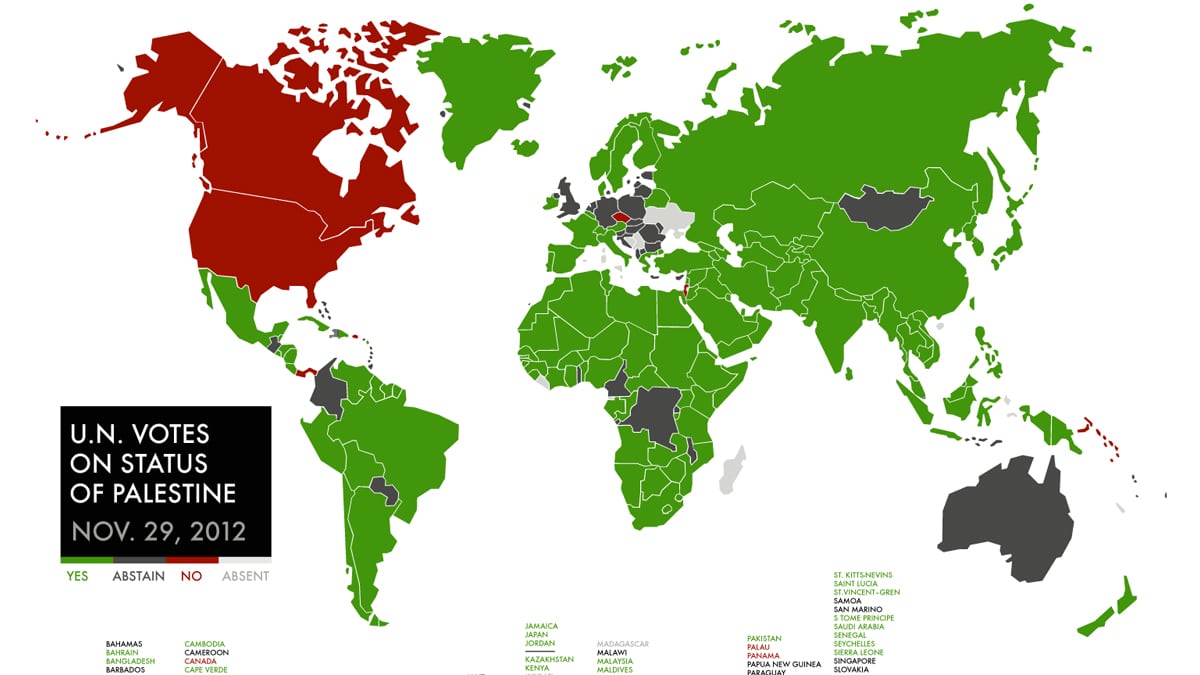Seven billion people live on Planet Earth. The governments of only 366 million of them voted against Palestine's upgrade at the United Nations yesterday. Looking at a map created by friends at explain.inc, two North American countries—colored in red—make up the only noticeable block of opposition. Together, the United States and Canada accounted for about 95 percent of the people in countries whose governments voted "no." The rest of the nays can be difficult to spot, and they're tiny not only in size, but also population. Four of the nine represent less than a 100,000 people, total. The total population of all the countries that voted "no" is about a third of the size of the world's largest democracy, India, obviously a yea itself.
Heres the map from explain.inc, which you can see in an enlarged version here:

What is this if not isolation? And where is the U.S. if not on the wrong side of it? Conservatives whine constantly about American decline, as if it is not caused by the U.S. ignoring the rest of the world (the way the Iraq war spoiled what goodwill the tragic attacks of 9/11 engendered). They would do well to consult today's New York TImes headline, which blared: "U.N. Assembly, in Blow to U.S., Elevates Status of Palestine." "Today’s unfortunate and counterproductive resolution places further obstacles in the path to peace," explained the American Ambassador to the U.N. Susan Rice. "That is why the United States voted against it." One wonders how the U.S. can say this, when it vetoed a rote U.N. condemnation of actual, physical obstacles to peace: Israel's growing settlements. Then, too, the U.S. was isolated, and the world body laid it bare.
Considering just how weak the American-Israeli Coalition of the Unwilling was, you can't help but see the vote as a repudiation of what Rice called decades of work "to help achieve a comprehensive end to the long and tragic Arab-Israeli conflict." That work, clearly, has failed. Even Israeli centrists woke up to the realities at the U.N.: that there would be few consequences for Israel and that the Palestinian West Bank leadership needed a hand—but the U.S. remains to the right of a Likud off-shoot. With the America asleep at the wheel, the world seemed to see that the Palestinians needed this boost to, speaking of small countries, the same status as the Vatican. Think about the absurdity of that for a moment: millions of stateless Palestinians, who live as refugees or under occupation, just now reached the same status as the tiny Papal state.
Just for the record, the Vatican, enclosed in a few square blocks of Rome, has less than 1,000 residents. They don't get a vote in the General Assembly, but they supported the Palestinian bid nonetheless.






